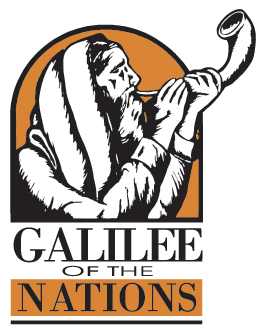
Hanukkah In The Book of Maccabees
Share
The Miracles, Mysteries and Histories of Hannukah | Part 2
Hanukkah In The Book of Maccabees
Welcome to Part 2 of our series The Miracles, Mysteries and Histories of Hanukkah!
In the first part of this series we did not elaborate on the horrors committed by Antiochus IV, nor did we discuss at length the mighty triumphs of the Maccabees. Today, we will only cover some of that ground.
Let’s begin by defining “Hellenization”:
Web Definition: (Hellenized) Hellenization is the historical spread of ancient Greek culture and, to a lesser extent, language, over foreign peoples conquered by Greece or brought into its sphere of influence, particularly during the Hellenistic period following the campaigns of Alexander the Great of Macedon.
The Book of 1 Maccabees in the Apocrypha describes vividly some of the atrocities committed to the Jewish people under the regime of Antiochus IV. The Syrian king was set on Hellenizing all of his conquered territories and the people therein. For the Jews, that meant Antiochus' appointment of Hellenistic Jews to the priesthood and other prominent roles in the Holy Temple. The fury of the Jews reached its height when one Menelaus--himself not even a priest--"was given the role of being the Temple's Kohen Gadol (High Priest)" (Parsons). Enraged at Antiochus and his Syrian rule which stipulated the Jews' assimilation into Greek Culture, many Jewish people rebelled and called for a switchover to Egyptian rule. The Egyptians, unlike the Syrians, did not require assimilation. Antiochus' response to the Jewish rebellion: the murder of some 40,000 of the Holy City's inhabitants. What followed this outrage was the decree:
that Jews must abandon their faith in the Torah and...cease offering sacrifices in the Temple. The Holy Temple itself was desecrated and images of the god of Zeus (the "sky god") were placed on the altar and in the sanctuary. Pagan altars were soon erected throughout Judea and pigs were regularly sacrificed upon them. The study of Torah was outlawed (as well as the observance of Shabbat, holidays, and ritual circumcision), and the penalty for disobedience to these decrees was death. (Parsons)
In short, most everything that signified the Jewish People's covenant relationship with Yahweh was being stripped away from them--or their own lives would be instead.
But some would not stand for this. In 165 B.C.E. a High Priest by the name of Matthias, a Hasmonean, joined cohorts with his youngest son, Judah "Macabee" (the "Hammer") to "[organize] a revolt that eventually succeeded in evicting the Syrian-Greeks from Israel" (Parsons). The Temple, having been desecrated during the terrors of Antiochus, was liberated from its corrupt rule but still required rededication so that the Jews could resume their proper, Biblically-prescribed worship of Yahweh. Part of that rededication was to rekindle the Menorah lights; Torah commands that the lights from this candlestick burn continually in the Temple. However, at least according to Talmudic tradition, there was a problem:
At the time of rededication, there was very little oil left that had not been defiled by the Syrian-Greeks...There was only enough to last for one day. Miraculously, the sanctified oil burned for eight days--the time needed to prepare a fresh supply of oil for the menorah. An eight day festival was declared to commemorate this miracle (Parsons).
And thus, the institution of what we now celebrate as Hanukkah.
We will learn more about this miracle in the fourth installment of this series entitled: The Oil
Thank you for joining us today! Check out Part 3 of The Miracles, Mysteries and Histories of Hanukkah: The Exploits of Judah Maccabee
Shalom (Peace) to you from Galilee of the Nations!
